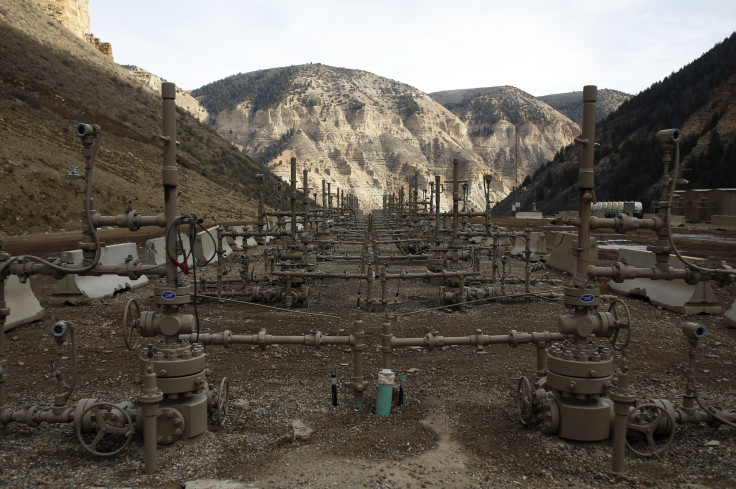Obama Drilling Plan For Federal Lands Receives New Pushback From Oil And Gas Companies

Update, 6/24/15: After a nine-hour hearing Tuesday, U.S. District Judge Scott Skavdahl ruled the U.S. Interior Department's Bureau of Land Management could not implement new rules for fracking operations on federal and tribal lands on June 24 as originally planned. The judge's final decision on a preliminary injunction request by U.S. oil and gas companies is now expected in mid-August.
Original Article Appears Below
U.S. oil and gas companies are fighting to suspend the Obama administration’s new rules for hydraulic fracturing and other industry practices on federal and tribal lands. The rules, set to take effect Wednesday, aim to limit harmful methane leaks from oil and gas operations and provide safeguards for air and water quality.
The energy industry and its supporters say the measures are redundant with existing standards and could place an unfair cost burden on oil and gas producers -- particularly those struggling to turn a profit amid plunging oil prices. The Independent Petroleum Association of America, the Western Energy Alliance and four U.S. states -- Colorado, North Dakota, Utah and Wyoming -- are seeking to suspend the fracking rules until their outstanding lawsuit against the U.S. Interior Department is resolved.
U.S. District Judge Scott Skavdahl has scheduled arguments for and against the request at a hearing Tuesday, the Associated Press reported.
“These new mandates on hydraulic fracturing by the federal government … are the complete opposite of common sense,” Barry Russell, president and CEO of the Independent Petroleum Producers of America, said in an earlier statement. “At a time when the oil and natural gas industry faces incredible cost uncertainties, these so-called baseline standards will threaten America’s economic upturn, while further deterring energy development on federal lands.”
About a quarter of the country’s shale oil and gas deposits reside under federal and tribal lands, which together cover 700 million acres -- roughly four times the size of Texas. Production on these tracts has jumped dramatically in recent years thanks to the boom in fracking technologies, which make it possible to tap previously unreachable deposits.
In March, the Obama administration unveiled a set of rules meant to tighten oversight of oil and gas projects on federally controlled land and water. One measure will require fracking operators to “construct sound wells, to disclose the chemicals they use and to safely recover and handle fluids used in the process.”
The Interior Department is also slated to adopt standards for reducing on-site emissions of methane, a powerful greenhouse gas. The measures will support a White House goal to cut methane from oil and gas sites on both public and private lands to 45 percent below 2012 levels within 10 years.
In fracking operations, small amounts of natural gas often rise to the surface alongside crude, and many companies have found it cheaper and easier to simply burn off, or “flare,” the gas, which produces methane emissions. Other times, the excess gas is intentionally vented or accidentally leaked from well sites and pipelines. All told, oil and gas companies on federal and tribal lands waste more than $360 million worth of natural gas each year, according to an Environmental Defense Fund analysis released Tuesday.
The report found oil and gas operators in these parts of the country emitted more than 1 million tons of methane in 2013, or about 12 percent of total U.S. methane emissions. While methane is less abundant than carbon dioxide, it’s dozens of times more potent as a greenhouse gas, meaning that relatively small amounts of methane can have an outsized global warming impact.
Researchers found that basic pollution fixes, such as frequent leak inspections and well site repair programs, could help reduce errant natural gas emissions by up to 40 percent.
Mark Brownstein, the Environmental Defense Fund’s vice president for climate and energy, called on the Interior Department to enact stringent federal standards for oil and gas producers. “The oil and gas industry is wasting a valuable public resource and making life difficult for their neighbors in the process by damaging both local air quality and the climate,” he said in a statement Tuesday. “Solutions to the problem are simple, straightforward, and cost-effective. It’s not hard to do. But it’s not going to happen without new rules.”
© Copyright IBTimes 2024. All rights reserved.




















